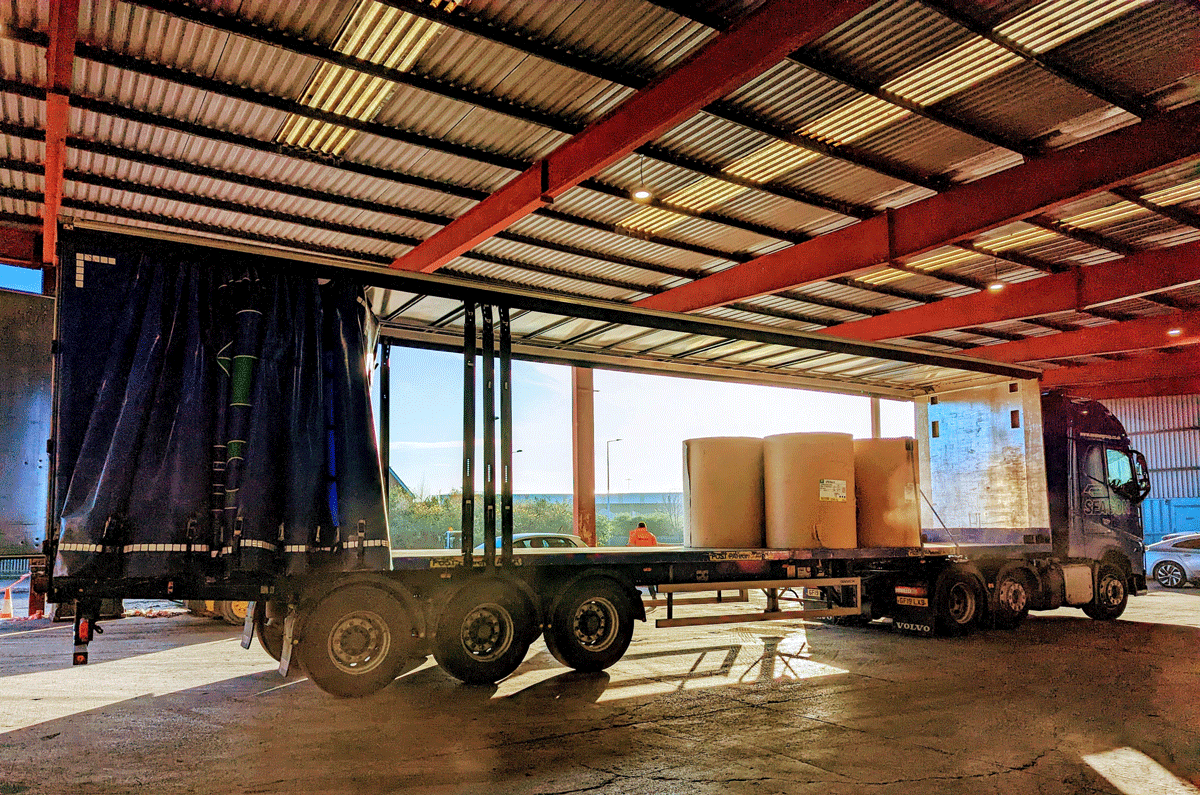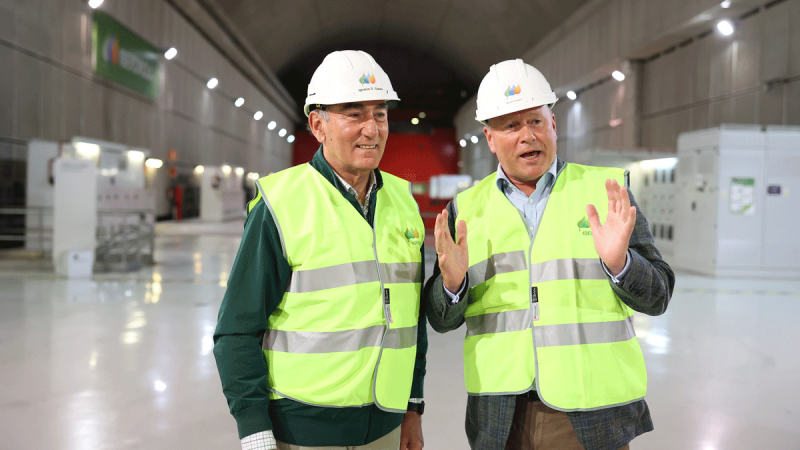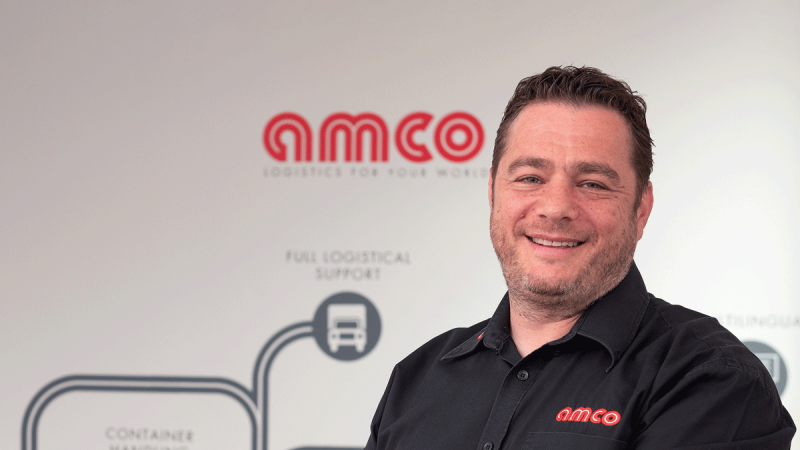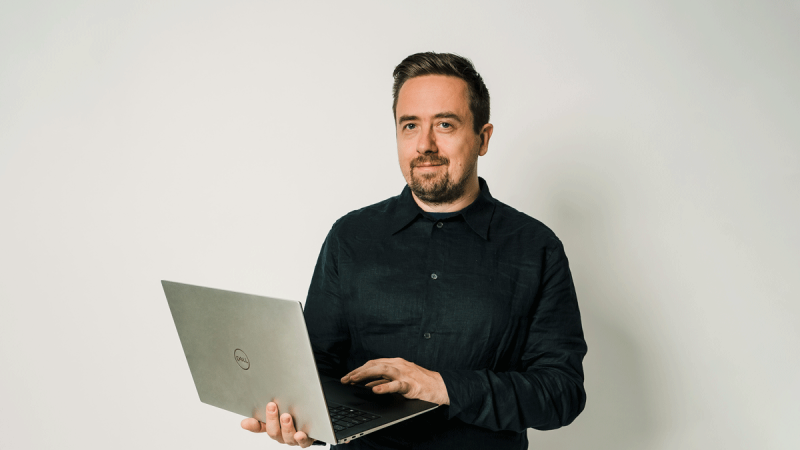Seacon SG is part of the Seacon Group, a privately family-owned Port-based 3PL company. As part of that Group, Seacon SG specialises in the handling, warehousing, and distribution of forest products. That means almost anything that comes from a tree, including paper, tissue, board, and pulp. Seacon SG handles these products at the pre-final production stages, such as large reels of paper for a press room, pallets of specialised papers, or reels that are manufactured at a processing plant and then go on to become boxes and other packaging.
“We provide a full logistics suite of services that starts with customs clearance,” Martin Phillips, Seacon SG’s CEO, explains. “We have our own team to do that, and then we manage container movement from port to warehouse, and container and vessel discharges. We have FIFO-enabled warehouse management and provide road haulage and freight forwarding capabilities.”
When it comes to delivering these services, Seacon SG is driven by one inspiration.
“We are obsessed with customer service and continual improvement,” Phillips says. “We are providing our customers with a best-of-breed service offering.”
Many companies pride themselves on their ability to listen to customers and develop bespoke solutions to fit their needs. Seacon SG goes a step further.
“We will independently approach customers and look at how we can do things better,” Phillips says. “We drive improvement with our services, we drive KPIs internally, and we are continually looking at what we have done, what we can do, and what we should do. It is always with the customers’ interests at heart. No matter how big our customers are, from a one-off job for a single shipment to recurring work containing regular shipments, we will handle it all in the same professional way.”
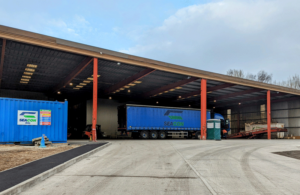 Expanding Services
Expanding Services
Right now, that customer-driven approach is driving an expansion of services at the port of Garston, in Liverpool. For Seacon SG this is something of a homecoming, as the company began its first operations out of Garston back in 1983. The company thought it had left Merseyside behind, but when customers shipping to Liverpool started talking about the need for an alternative service provider for the area, Seacon SG was able to quickly step in.
“We initially set up a small and expandable facility, and interest was so good that within five months we had long-term contracts with two multinationals, including the largest paper provider in the world,” Phillips recalls. “We reached capacity very quickly, then spoke to our landlords, ABP, about possible expansion.”
Very quickly two more warehouses were provided to allow Seacon SG to offer additional warehousing for its existing customers.
But Seacon SG’s warehousing capacity is not the only part of the business that has been growing. The company’s staff has also increased by 100% over the last 18 months. But with that growth has come new challenges.
“Because of that rapid expansion, we were trying to fly the plane while building it,” Phillips jokes. “In Garston, we used a variety of methods to do that. Recruitment agencies were hit and miss and came at a cost. We found that online job sites worked well for us with good responses, good retention, and low costs, but honestly, the most successful recruitment channel was word-of-mouth and previous acquaintances. It is a close-knit industry; you never really escape anybody!”
A Culture to Preserve
Phillips himself is a case in point. He joined Seacon SG in 1992.
“I started as a trainee warehouseman but because I had an A-level in Computer Science,” Phillips recalls. “I was placed into the office from day one, and I moved through the company from stock control, transport, accounts, IT, and customer service.”
However, perhaps surprisingly now, Phillips left Seacon SG after five-and-a-half years to work for another company.
“Six months later I was enticed back and then the same thing happened again five years later!” he says.
Today, having been with the company long enough to become its CEO, Phillips places a great deal of importance on the aspect of character in recruitment.
“In an industry like ours, we are a small team, and we ask a lot of our staff,” Phillips says. “If someone’s character isn’t right for the organisation those problems will come to the forefront quite quickly.”
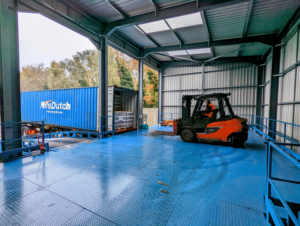 It all comes down to maintaining the company culture, which can be a challenge for businesses undergoing a period of rapid growth.
It all comes down to maintaining the company culture, which can be a challenge for businesses undergoing a period of rapid growth.
“I was very conscious that over the previous five years we had expanded from a small operation with a strong reputation,” Phillips says. “That success gave us the ability to be known in the market and to expand back into Liverpool. So, I was conscious that we needed to provide that same level of service in the North that we had in the South and, at the same time, without disrupting our southern operations or taking our eye off the ball.”
It is something Phillips hammers home with his managers, and together they work hard to communicate that culture to Seacon SG’s staff.
“We have presentations internally and externally, talking about our culture and our mission statements,” Phillips says.
The work is paying off. In March Seacon SG conducted a closed-envelope survey asking staff about the company’s mission and culture statements. 100% of staff agreed that those statements reflected the experience of working at Seacon.
“It is about being consistent at all times, making it part of the conversation in the introduction and development of new staff,” Phillips insists. “We have adopted HR techniques for recruitment such score cards to ensure we have an idea of what type of person we need for the role. We will not just be charmed by the most interesting person on the day, we make sure the scorecard matches the candidates.”
Once you have hired the right people, the next challenge is to keep them. Fortunately, this is an area where Seacon SG excels.
“We have always had good staff retention,” Phillips says. “In the 1990s, we had people who had been working with the firm since 1983 and, indeed, we were very proud to invite one of the original team back to Garston last year, to complete his career where it all started. We engage with our staff and treat them as individuals, not numbers. I will wish them a happy birthday or work anniversary, remind them that we care about them and, in general, have an open-door policy for all staff.”
The company has seen some changes and, since 2004, is under its second ownership, but both of the firm’s owners have been family-run businesses.
“The feel and the brand are the same. We need to adapt and change to remain competitive, so there is passion at the senior management level to make sure our staff are engaged,” Phillips says. “It has been a pleasure to contribute to that and maintain our good name moving forward.”
And Phillips is excited about where the company will go as it moves forward.
“We want to continue to improve our service operations,” he says. “We are seeing high demand in both the north and south for additional warehousing and it is a competitive market, so we want to maximise our resources. In more tangible terms that could mean expansion to new ports or additional real estate at our current locations. Away from the operation, we also expect to see our Customs clearance department continue to grow too.”
However, as the company expands, Phillips intends to preserve the culture and values that made it great.
